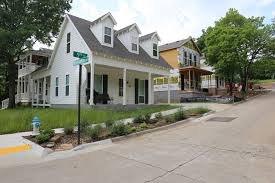Your home’s siding does more than just enhance curb appeal — it acts as the first line of defense against the elements, provides insulation, and contributes to energy efficiency. For homeowners in Fayetteville, Georgia, where seasonal changes can bring everything from hot, humid summers to chilly winters, choosing the right siding is especially important.
But with so many options on the market, how do you know which one is right for your property? This guide will help you understand the benefits and considerations of different siding materials, so you can make an informed decision that improves both the appearance and durability of your home.
Understanding Your Siding Options
There are various types of siding available, each with its own set of advantages. Let’s look at the most popular options:
1. Vinyl Siding
Vinyl is one of the most popular siding materials in the U.S., and for good reason. It’s affordable, low-maintenance, and available in a wide range of colors and textures. Vinyl siding is also resistant to moisture and insects, which is a plus in Georgia’s warm climate.
However, it can crack in extreme temperatures or fade over time if not UV-protected. Still, with proper installation and occasional cleaning, vinyl siding can last up to 30 years or more.
2. Fiber Cement Siding
Fiber cement is a durable and versatile siding option that mimics the look of wood, stucco, or masonry. It’s highly resistant to fire, pests, and rot, making it an ideal choice for homeowners who want both style and strength.
Although fiber cement is heavier and more costly than vinyl, its long lifespan and low maintenance requirements often justify the investment. It’s also more environmentally friendly, as it’s made from sustainable materials like sand, cement, and cellulose fibers.
3. Wood Siding
Wood siding offers a timeless and natural aesthetic that many homeowners love. Cedar and redwood are popular choices for their resistance to decay and insects. Wood siding can be stained or painted to achieve virtually any look.
The downside? Wood requires regular maintenance, including sealing, painting, or staining every few years. It’s also more susceptible to water damage and termites, particularly in humid areas like Georgia.
4. Metal Siding
Aluminum and steel siding offer excellent durability and weather resistance. They are fire-resistant and can stand up to wind and hail. Metal siding is also recyclable, which adds to its eco-friendly appeal.
However, metal can be prone to denting and may not offer the same warmth and texture as other siding materials. It’s best suited for modern-style homes or buildings that require a rugged, industrial look.
5. Engineered Wood Siding
This innovative product combines the aesthetic of real wood with added strength. Made from wood fibers and resins, engineered wood siding is designed to resist common issues like moisture damage and fungal growth.
It’s a more budget-friendly option compared to natural wood and requires less maintenance. Many homeowners find it a perfect compromise between beauty and practicality.
Key Considerations for Fayetteville Homeowners
When selecting siding, it’s important to consider Fayetteville’s local climate and environmental factors. Humidity, rainfall, and seasonal temperature shifts can affect the longevity and performance of certain materials.
Here are a few questions to ask yourself:
- Durability: Can the siding withstand Fayetteville’s hot summers and occasional winter freezes?
- Maintenance: How often will you need to clean or repaint the siding?
- Insulation: Does the siding provide good energy efficiency?
- Aesthetics: Will the siding complement the architectural style of your home?
- Cost: What’s your budget, not just for materials but also for installation and upkeep?
Balancing these factors can help you find a solution that enhances both the look and function of your home.
Why Professional Installation Matters
No matter which siding material you choose, professional installation is key to maximizing its benefits. Improper installation can lead to water intrusion, energy loss, and costly repairs down the line. That’s why it’s important to work with experts who understand the nuances of siding in your local area.
If you’re exploring options for Siding fayetteville ga, it’s worth consulting professionals who specialize in local homes. Their experience with regional weather conditions and building codes can make all the difference in the success and longevity of your siding project.
Final Thoughts
Your home is one of your most significant investments, and siding plays a major role in protecting and enhancing its value. By understanding the pros and cons of different materials and prioritizing quality installation, you can choose a siding solution that meets your needs for years to come.
Whether you’re updating an older home or building new, taking the time to choose the right siding will pay off in comfort, aesthetics, and resale value.

